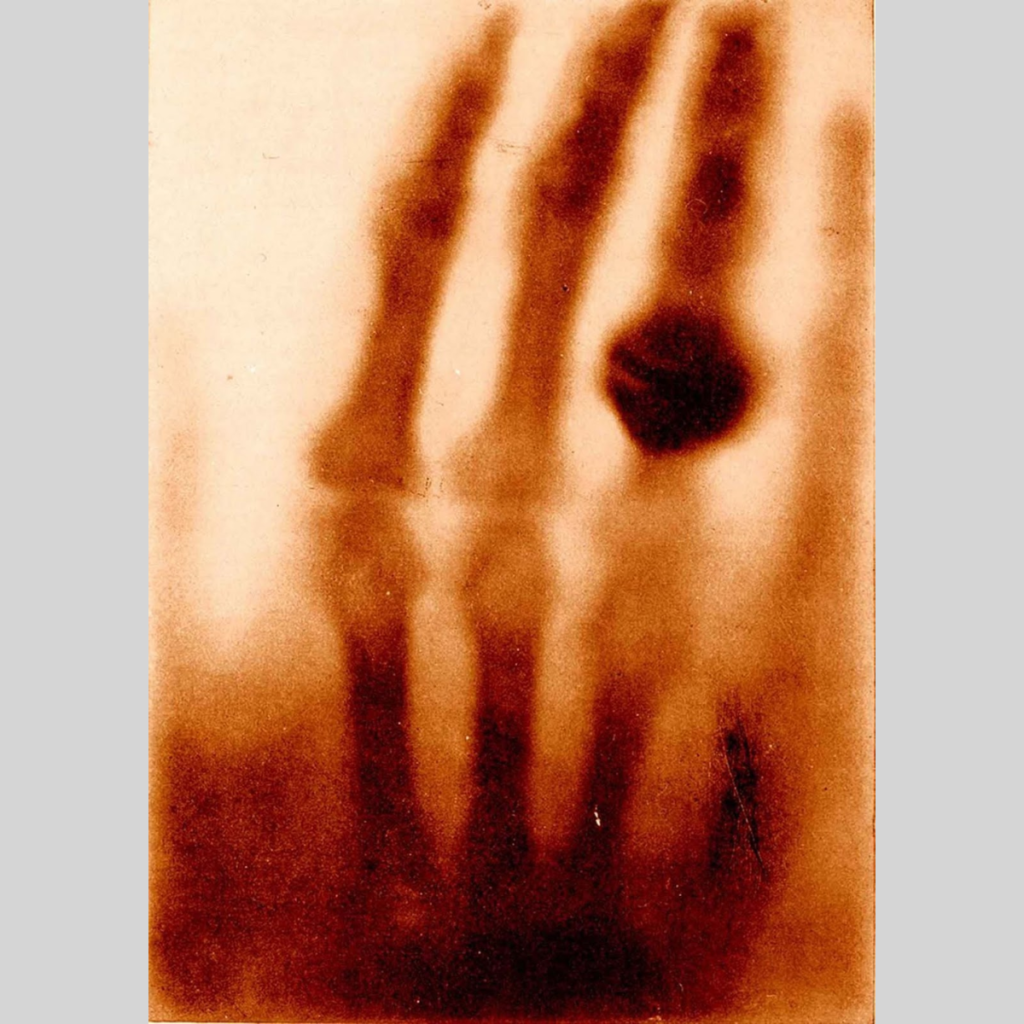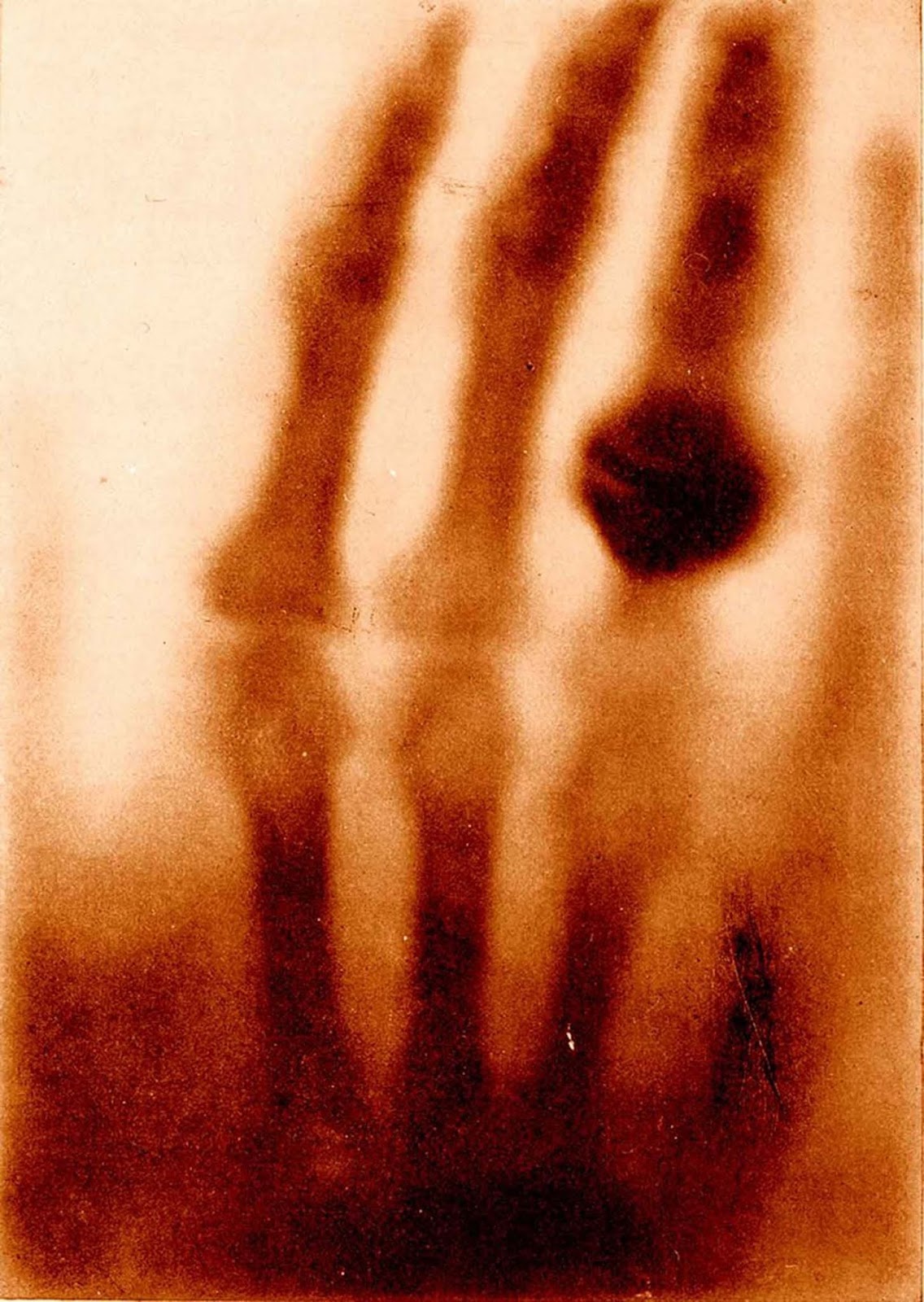
 There’s no way of knowing how many pictures were taken of Anna Bertha Röntgen, and most are surely lost to history. But one of them isn’t: it is of her hand—more precisely, the bones in her hand—an image captured by her husband Wilhelm when he took the first medical x-ray in 1895.
There’s no way of knowing how many pictures were taken of Anna Bertha Röntgen, and most are surely lost to history. But one of them isn’t: it is of her hand—more precisely, the bones in her hand—an image captured by her husband Wilhelm when he took the first medical x-ray in 1895.
Wilhelm had spent weeks working in his lab, experimenting with a cathode tube that emitted different frequencies of electromagnetic energy. Some, he noticed, appeared to penetrate solid objects and expose sheets of photographic paper.
He used the strange rays, which he aptly dubbed x-rays, to create shadowy images of the inside of various inanimate objects and then, finally, one very animate one.
The picture of Anna’s hand created a sensation, and the discovery of x-rays won Wilhelm the first Nobel Prize ever granted for physics in 1901. His breakthrough quickly went into use around the world, revolutionizing the diagnosis and treatment of injuries and illnesses that had always been hidden from sight.
Anna, however, was never taken with the picture. “I have seen my death,” she said when she first glimpsed it. For many millions of other people, it has meant life.